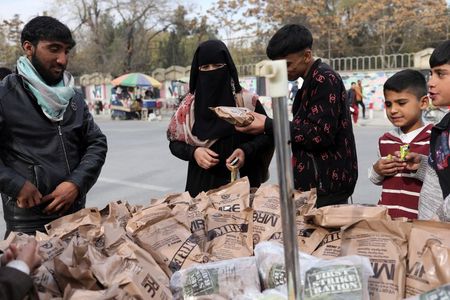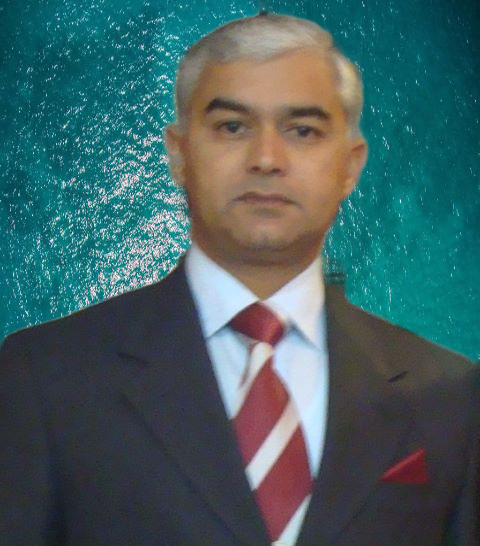
Can India Emerge as Afghanistan’s Friend in Need?

Afghanistan is today one of the least developed countries with GDP of US$ 19.8 Billion and per capita GDP of US$ 508.8 (both nominal values). If we assess Afghanistan from the point of view of the various matrices of human development index, the period from 2001 till August 2021 witnessed relative progress in infrastructure, literacy as well as higher education, medical care, infant mortality, sanitation and women rights and their participation in various activities in society. International community made concerted and significant effort to rebuild the war-ravaged nation with the world bank contributing US$ 5.3 billion for various projects. The recent tumultuous events in Afghanistan leading to the blitzkrieg take over by Taliban have affected the geopolitical, security and economic relations of countries in the region in unexpected ways but also upended the life of the common citizens in more ways than one.
India’s relations with Afghanistan date back to time immemorial. India has had diplomatic, cultural, trade and people to people relations with Afghanistan since ancient ages. India invested significantly in Afghanistan in the last two decades, in fact it was the largest regional donors. During this period of the US backed governments significant progress and development was witnessed. India constructed the Salma Dam, the parliament building and was involved in setting up high voltage power distribution lines. In addition, it has constructed roads, highways, schools, hospitals etc in Afghanistan and has provided educational scholarships to Afghan students studying in Indian Universities. The value of India’s investments in Afghanistan is upward of US$ 3 Billion.
In 2016, at India’s initiative, Afghanistan had joined India and Iran for the development of a transit and transport corridor from Chabahar port which could later become part of International North South Trade Corridor’s eastern branch. This was to facilitate India Afghan trade which often faces hurdles due to the intransigence of Pakistan and also to benefit Afghanistan’s infrastructure development. This has now been rescinded by India after the coming to power of the Taliban.
With the coming to power of the Taliban, not only the small steps towards development are likely to be undermined, but a humanitarian crisis has also emerged in Afghanistan. In a nation whose economy was largely dependent on foreign aid has seen the aid tap closing due to the global abhorrence to the type of Islam that the Taliban practices and imposes on the citizens. Almost the entire global community is loath to recognize the Taliban, while the Taliban in order to gain access to the US$ 9.5 billion assets of the previous government blocked by various financial institutions and banks, is in a desperate quest of international recognition and legitimacy and is leaving no stone unturned; except relenting on the issues of an inclusive government and rights of women and minorities. While the global community has a valid point in not according legitimacy to the regime, the people of Afghanistan cannot be made to suffer the immense tribulations for the actions of the violent usurpers of their destiny.
India has been acutely aware of the humanitarian disaster unfolding in Afghanistan due to the prevailing drought like conditions and economic collapse following the takeover by Taliban. India has been confronted with this moral dilemma for the last few months. On one hand India doesn’t want to legitimize the Taliban regime by recognizing it and at the same time it is concerned with the immense distress of the Afghan people.
On 10 November 2021, India organized a regional dialogue on the crisis in Afghanistan which was attended by the National Security Advisors of India, Russia, Iran, Kazakhstan, Kyrgyzstan, Tajikistan, Turkmenistan and Uzbekistan. In addition to the impact of the developments in Afghanistan on the regional security situation the need of providing urgent and unimpeded humanitarian aid was discussed during the conference. Next day India announced its decision to provide humanitarian aid in the form of food grain and medicines to Afghanistan. India announced that she will provide fifty thousand metric tonnes of wheat to Afghanistan. It appears that India had been in informal talks with Pakistan to allow the humanitarian aid to pass through its territory to Afghanistan prior to this regional conference, which had been declined by Pakistan. India used the joint call for action during Regional NSA’s dialogue as a combined diplomatic initiative to compel Pakistan to facilitate movement on ground.
Pakistan as usual- as with the World Food Programme aid originating in India, which also Pakistan didn’t allow through its territory, played a diabolical role in facilitating the delivery of humanitarian aid to Afghanistan by putting conditionalities on the movement of the Indian humanitarian aid. Violating all global norms of humanitarian concern for a beleaguered neighbour, Pakistan has demanded transshipment charges and asserted that Indian trucks will not be allowed to transport the humanitarian aid through its territory. Indian suggestion for resolving the stalemate by allowing Afghan trucks to carry the consignment was also not agreed to. Instead, Pakistan has been adamant on transporting the aid consignment through Pakistani trucks under UN banner. Ostensibly, it appears to be a classic case of first benefiting from the neighbour’s misery by charging a premium on aid consignment and then hogging credit by projecting the aid consignment to be Pakistani by transporting it through Pakistani trucks.
To defeat this Pakistani chicanery, India retains the option of transporting the aid consignment through the Chabahar Port and then through the Khaf Herat rail link. However, this route is much longer than the just 700 km of the route through Pakistan and thus not only more expensive in terms of freight cost but more time consuming due to the transshipments involved. There is an urgent and implicit need for the international community and organizations to prevail upon Pakistan to facilitate unconditional and unimpeded transportation of all humanitarian aid originating in India to Afghanistan. In this regard India could approach and utilize the agencies of the influential Saudi Arabia and UAE as also the Organisation of Islamic Countries to convince Pakistan to allow unhindered passage of all humanitarian aid through its territory.
The other challenge that India faces with respect to the Taliban dispensation in Kabul is twofold; firstly denying any incidental legitimacy to Taliban as a lawful government of Afghanistan by virtue of being the recipient of the humanitarian aid, and secondly, ensuring that this aid which is meant for the needy citizens reaches those intended recipients without getting diverted or hoarded by the Taliban commanders and warlords.
In conclusion, it is imperative Indian policy makers to not lose focus of the ultimate global aim of compelling the Taliban, sans any military means to come around to respecting universal human values and form an inclusive, truly representative government which actually works for the progress and development of the Afghan society and is also acceptable to the global community. Providing humanitarian aid without achieving the transformation of Taliban would just amount to squandering valuable resources in furtherance of the agenda and ensuring the survival of a terrorist group brutally repressing its people. Unless there is tangible progress on these issues, lasting peace and progress in Afghanistan, may well remain a chimera.
**************
Disclaimer
The opinions expressed in this article are the author’s own and do not reflect the views of Chanakya Forum. All information provided in this article including timeliness, completeness, accuracy, suitability or validity of information referenced therein, is the sole responsibility of the author. www.chanakyaforum.com does not assume any responsibility for the same.
Chanakya Forum is now on . Click here to join our channel (@ChanakyaForum) and stay updated with the latest headlines and articles.
Important
We work round the clock to bring you the finest articles and updates from around the world. There is a team that works tirelessly to ensure that you have a seamless reading experience. But all this costs money. Please support us so that we keep doing what we do best. Happy Reading
Support Us





















POST COMMENTS (24)
Bikram
Maj Gen Arjun Sharma
Brig AK MAINI
Niranjan S
Prem Rajpurohit
DR Prasad
Dr. Sukhvir Singh
Sangeeta Kumar
Gayatri Singh
Jyoti Kaur
Brijesh
Adyasha Singh
Archana singh
Divey Saib
Capt Kapil Manglik Veteran
Subhash Pandey
Rohit Rajpal
Col R K Chand
Col R K Chand
Vikramjeet singh
Brig Shantanu Kumar Dash, SM
LtCol KSN Sukumaran
deepak talwar
Nihalani